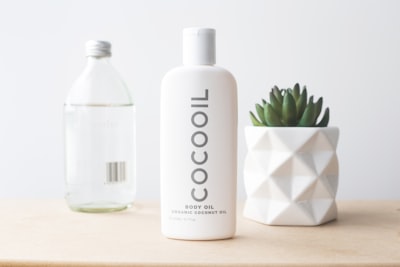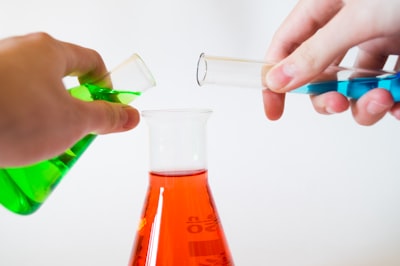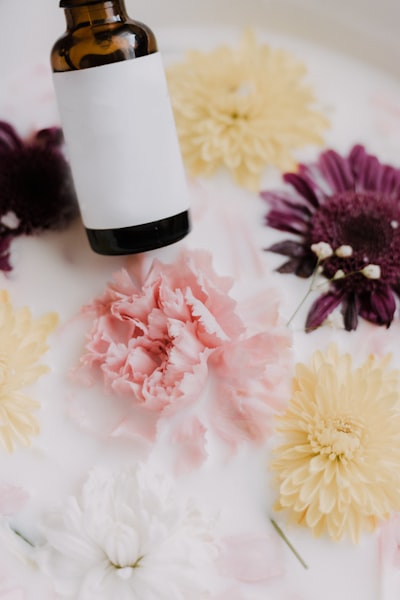Avoiding Toxic Chemicals in Shampoo: Your Ultimate Guide
Toxic chemicals in hair care products, such as shampoos, have become a growing concern for health-conscious individuals. Many of us use shampoo on a daily basis, not realizing that we may be exposing ourselves to harmful ingredients that can have long-term health effects. In this blog, we will unmask the toxicity in hair Products and explore the dangerous ingredients commonly found in shampoos. We will also delve into the hidden dangers of synthetic fragrances and colors, and discuss the risks associated with chemicals like triclosan and dimethicone. Finally, we will provide tips and recommendations for transitioning to safer alternatives and reducing exposure to toxic chemicals. Join us as we navigate the world of shampoo and learn how to protect ourselves and our hair at Boston Salon.
Unmasking the Toxicity in Hair Products
The beauty industry often prioritizes cosmetic appeal over consumer health, and hair products, including shampoos, are no exception. While shampoo is essential for maintaining clean and healthy hair, many everyday shampoos contain toxic chemicals that can have harmful effects on our health and hair.
The Silent Harm of Everyday Shampoo - Toxic Chemicals in Shampoo
Everyday shampoo, a product that is meant to cleanse and care for our hair, may actually be doing more harm than good. Chemical ingredients found in shampoo, such as coal tar and retinyl palmitate, have been linked to birth defects and reproductive problems. These ingredients, known as carcinogens, can disrupt hormones and cause long-term health issues.
Common Chemical Culprits Found in Shampoo
Several chemicals commonly found in shampoos can be harmful to both our health and hair. Sodium laureth sulfate and sodium lauryl sulfate, known as sulfates, are ingredients used as foaming agents but can also strip natural oils and dry out hair and scalp. Parabens, a type of preservative, are often used in shampoos and have been linked to hormone disruption and reproductive problems. Polyethylene glycols (PEG) are synthetic moisturizers used in shampoo, but they can clog hair cuticles and contribute to a drying effect. Synthetic fragrances and colors, used to enhance the cosmetic appeal of shampoos, can contain toxic chemicals and harmful levels of dioxin, a known human carcinogen.
Diving Deep into the Dangerous Ingredients
Sulfates, such as sodium laureth sulfate and sodium lauryl sulfate, are commonly used in shampoos for their foaming and cleansing properties. Unfortunately, these ingredients can strip natural oils and protective layers from hair, leading to dryness, irritation, and hair damage. Sulfates can also cause hair color to fade and can be particularly harmful to individuals with dry hair or a sensitive scalp. To avoid these harmful effects, it is essential to choose sulfate-free shampoos and hair care products that can help maintain hair health and prevent dryness and damage. Natural oils, like coconut oil, can be a better alternative to sulfates, providing hair with nourishment and moisture.
Parabens: More Than Just Preservatives
Parabens, a type of preservative, are widely used in shampoo and other personal care products. However, research has shown that parabens can disrupt hormones and reproductive health, and a potential risk of breast cancer has been associated with their use. The risk of breast cancer is linked to the absorption of parabens through the skin and their ability to mimic estrogen in the body. To reduce exposure to harmful chemicals, it is important to choose paraben-free shampoos and products that use natural ingredients, such as aloe vera and essential oils, as alternatives to synthetic preservatives.
Polyethylene Glycols (PEG): A Deceptive Moisturizer
Polyethylene glycols, commonly known as PEG, are synthetic moisturizers and emulsifiers used in shampoo and personal care products. While they may provide a temporary moisturizing effect, PEGs can contribute to a drying effect on hair and scalp, and, over time, lead to a dull and lifeless appearance of hair, loss of natural shine, and volume. It is best to opt for natural shampoos and hair care products without PEG ingredients and, instead, choose organic ingredients, such as olive oil and natural oils, to provide effective and safe moisturization for hair and scalp.
The Hidden Dangers of Synthetic Fragrances and Colors
Synthetic fragrances and colors are often added to shampoos to enhance the sensory experience and cosmetic appeal of hair products. However, these artificial scents and colors can pose health risks and have harmful effects on hair and scalp health.
The Trouble with Artificial Scents
Synthetic fragrances, often listed as "parfum" on ingredients lists, are a common ingredient in hair products, including shampoos. These artificial scents can cause skin irritation, allergic reactions, and respiratory problems, and may even contain toxic chemicals harmful to human health. Hair products with natural fragrances, derived from essential oils and natural ingredients, offer a safer and healthier alternative. Natural fragrances provide a pleasant and subtle scent, without the risk of skin irritation and harmful chemical exposure. By opting for hair care products without synthetic fragrances, we can help protect hair and scalp health and minimize potential health risks.
Color Additives and Their Risks
Color additives, used in shampoos and hair products, can also pose health risks and have harmful effects on hair and scalp health. Artificial colors, labeled as FD&C or D&C, are derived from coal tar and have been associated with organ system toxicity and carcinogenic effects. Hair products with natural colors, derived from organic ingredients, can be a safer and healthier choice. To ensure a chemical-free hair care experience, it is essential to read and understand the ingredients list of hair products, particularly shampoos, and avoid synthetic colors and their associated risks.
Triclosan and Dimethicone: A Closer Look
Let's now take a closer look at two more chemicals commonly found in shampoos and hair care products, triclosan and dimethicone, and understand the potential risks they pose.
Triclosan: An Unwanted Antibacterial Agent
Triclosan, a synthetic chemical, is often added to shampoos and other personal care products as an antibacterial agent. However, triclosan has been linked to immune system problems and reproductive issues, and both the FDA and EPA have expressed concerns about its potential harmful effects. To ensure a safer personal care routine, it is best to choose natural shampoos that are free of triclosan and instead offer natural ingredients known for their antibacterial properties.
Dimethicone: A Silicone-based Concern
Dimethicone, a type of silicone, is a common ingredient in shampoos and hair care products. While dimethicone can create a protective layer on hair, it can also lead to hair shaft and cuticle damage, resulting in dry and lifeless hair. To avoid these problems, it is essential to choose shampoos and hair care products without dimethicone and instead opt for natural oils, such as coconut oil and olive oil, known for their nourishing and protective properties.
Transitioning to Safer Alternatives - Natural Shampoo and Conditioner
Now that we have a better understanding of the dangerous ingredients commonly found in shampoos and hair care products, let's explore how we can transition to safer alternatives and reduce our exposure to toxic chemicals. Make your own natural shampoo at home using simple ingredients like castile soap, essential oils, and water. This way, you have full control over what goes into your shampoo and can avoid any potentially harmful chemicals.
Another option is to look for shampoos that are labeled as "organic," "natural," or "chemical-free." These products usually contain plant-based ingredients that are gentle on the hair and scalp. By opting for natural shampoos and conditioners, we can not only protect our hair and scalp, but also contribute to a healthier environment. Many conventional shampoos contain harmful chemicals that not only have adverse effects on our health but also get washed down the drain into our water systems.
When it comes to choosing a natural shampoo, it is important to look for options that are free from toxic chemicals such as triclosan and dimethicone. Triclosan, an antibacterial agent, has been linked to hormone disruption and even antibiotic resistance. On the other hand, dimethicone
What are some toxic chemicals commonly found in shampoo?
Some toxic chemicals commonly found in shampoo include sulfates, parabens, phthalates, and synthetic fragrances. These chemicals can have harmful effects on both our health and the environment. It's important to read labels and opt for natural and organic shampoo options to protect ourselves and our planet. Toxic chemicals in shampoo can lead to distressed locks.
Non-toxic Shampoos
When shopping for shampoos, it is essential to look for products labeled as sulfate-free, as sodium laureth sulfate and sodium lauryl sulfate are harmful ingredients that can strip natural oils and dry out hair and scalp. In addition, it is important to avoid shampoos with synthetic fragrances, retinyl palmitate, and dmdm hydantoin, which can cause skin irritation and health problems. Checking for natural ingredients, essential oils, and organic certifications can help ensure a safer shampoo choice. Natural thickening agents, like aloe vera and coconut oil, can provide added hair care benefits without the risk of harmful chemicals. It is also worth considering shampoos with a shorter shelf life, as they are less likely to contain harmful chemicals and synthetic colors.
Recommended Products for Healthier Hair
At Boston Hair Experts, we prioritize ingredient list transparency and organic ingredients when recommending hair care products. We suggest natural shampoos and conditioners that focus on hair health and address specific concerns, such as dry hair or hair loss. Look for products with natural oils, like coconut oil and olive oil, known for their nourishing and protective properties. opt for shampoos and conditioners that use natural fragrances, essential oils, and plant-based ingredients for a pleasant and chemical-free hair care experience. Boston Hair Experts offers a list of ingredients to avoid and a list of natural shampoos and conditioners, providing a healthier hair care routine. Removing toxic chemicals in shampoo and conditioner is not only beneficial for your hair and scalp but also for your overall health.
What are some toxic chemicals commonly found in shampoo?
Some toxic chemicals commonly found in shampoo include parabens, sulfates, phthalates, synthetic fragrances, and formaldehyde. These chemicals can have negative effects on your health and the environment, so it's important to choose shampoo brands that are free from these harmful ingredients.
To ensure a safer shampoo choice, it is essential to check for natural ingredients, organic certifications, and the use of essential oils. Natural thickening agents like aloe vera and coconut oil
Can Your Shampoo Choices Reduce Your Exposure to Toxic Chemicals?
By making informed shampoo choices, we can significantly reduce our exposure to toxic chemicals and protect our health and hair. Opting for natural and organic shampoos and conditioners, and understanding the potential health risks of certain shampoo ingredients, empower us to make safer and healthier hair care choices. Boston Hair Experts provides a range of natural and organic hair care products, reducing exposure to toxic chemicals and promoting hair health. By choosing natural shampoos, we can contribute to a safer and healthier personal care routine.
Try at home hair care masks with natural oils; infuse these oils with a steam machine! At Boston Hair Experts, we believe in the power of natural ingredients to nourish and protect your hair. That's why we recommend incorporating at-home hair care masks into your routine. These masks, infused with natural oils like coconut oil and olive oil, provide deep hydration and strengthen your hair from root to tip. To enhance the effectiveness of these masks, consider using a steam machine to open up your hair follicles and allow the oils to penetrate deeply. This simple yet powerful technique can revitalize your hair and leave it looking healthier than ever before. Give it a try and experience the transformative benefits of natural oils.
The conclusion from Boston Hair Experts
In conclusion, it's important to be aware of the toxic chemicals present in everyday hair products, especially shampoos. These products can contain harmful ingredients such as sulfates, parabens, polyethylene glycols (PEG), synthetic fragrances, colors, triclosan, and dimethicone. These chemicals can have adverse effects on both your hair and overall health. To protect yourself, consider transitioning to safer alternatives and choose non-toxic shampoos that prioritize natural and organic ingredients. By making conscious choices about the products you use, you can reduce your exposure to toxic chemicals and promote healthier hair. Take control of your hair care routine and make informed decisions to safeguard your well-being.
Hair Extensions Background
At Noelle Salon, they evaluate your natural hair, and listen to the client's wishes on styling, color match, and look. They use human hair extensions like 100% Remy human hair, or Virgin Hair (unlike Bellami hair). Hair extensions can be used for short hair or 24 inches of a full head of hair, and they have worked with different methods like tape-in extensions, clip-in hair extensions, Keratin and enjoy using the Veila Pull-thru method with the Veila Hair Extensions for ease of hair care. Styling can vary from flat iron, natural curl, or curly hair. Whether you are looking for a change of style or look for a day such as a Clip-in ponytail, having a high-quality ponytail extension can mix it up for you. Your natural hair journey with your hair growth can be enhanced with Hair extensions when protective styling is applied, and regular maintenance is used. You can change your hair in one day - feel free to reach out and explore the possibilities.









